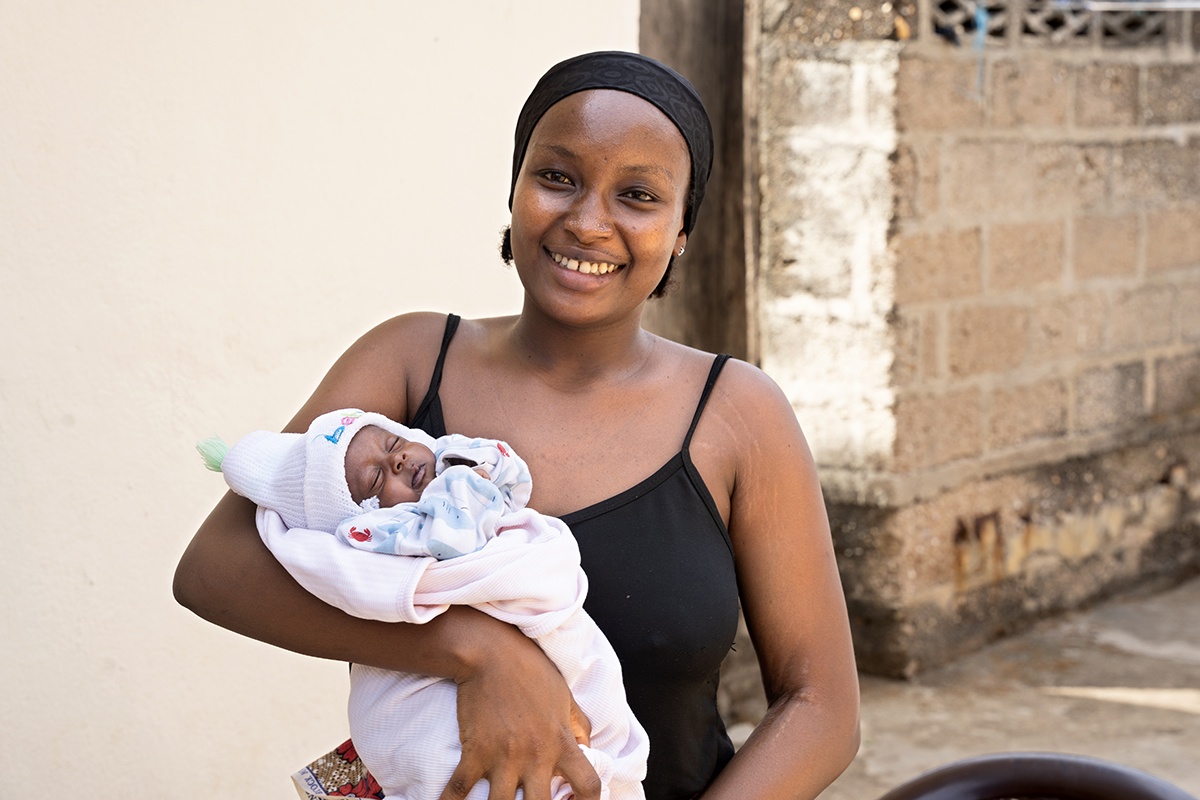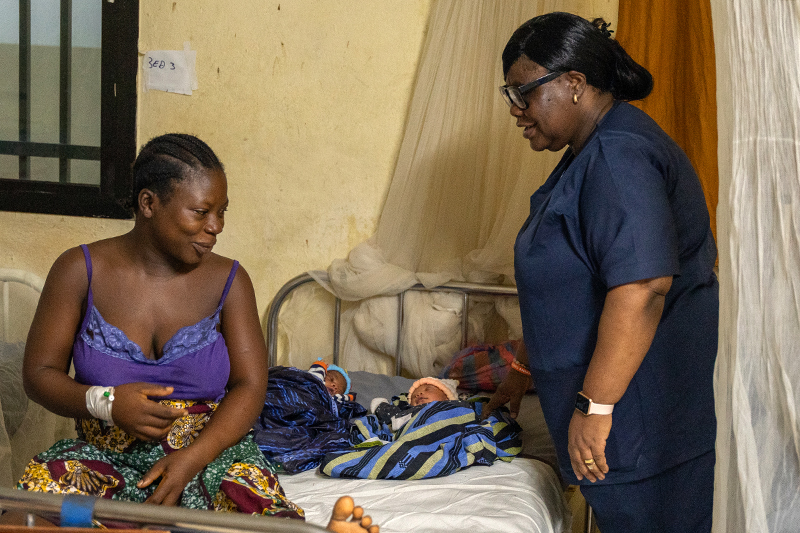In Sierra Leone, Grief Support Program Helps Families Navigate Loss
The new program offers counseling, practical guidance, and more.
Posted on May 6, 2025

Bintu Jalloh’s blood pressure spiked as she was ushered into Koidu Government Hospital’s (KGH) maternity ward by Community Health Officer Lamina Mansaray. Jalloh, who was 32 weeks pregnant with twins at the time, expected to stay in the ward only a few days—like she had earlier in her pregnancy. But this time was different.
Her blood pressure steadily worsened, eventually becoming uncontrollable. Just a day after being admitted to KGH, Jalloh required an emergency C-section, and though both babies were initially healthy, one tragically died two weeks later.
Jalloh’s blood pressure continued to be unstable following the birth, so clinicians advised her to remain in the maternity ward to recover. Her newborn, meanwhile, fought to stay alive in the nearby special care baby unit (SCBU)—a facility similar to a neonatal intensive care unit.
“It was really tough,” says Jalloh of those weeks. “But due to Lamina and his word of courage, I was able to be okay at the maternity ward.”
After staying at KGH for nearly 60 days, Jalloh's baby was discharged in February—a month after Jalloh was discharged. During this lengthy recuperation, Jalloh received ongoing encouragement and counseling from Mansaray and other members of the hospital’s newly established bereavement support program. This compassionate care from Mansaray—who Jalloh now sees as “family”—helped her process her loss and find strength to keep going.
Navigating Loss Together
The bereavement support program was initiated in February 2024 by midwife Sister Patricia Efe Azikiwe, who recognized the need to support mothers and families better after they experienced a devastating loss. However, while the program is new, Azikiwe’s experience supporting others through loss spans decades. As a child, she suffered a tragedy of her own when her stepsister died during labor.
“My sister’s death was what made me to go into midwifery. I vowed that I would do everything possible to save a woman from dying,” says Azikiwe, KGH’s reproductive, maternal, newborn, child, and adolescent clinic program manager. “I’ve slept in this office on several occasions if we have a critical case. If the patient [dies], I know I have done everything humanly possible [to save her].”

Through the bereavement support program, Azikiwe, Mansaray, and staff across departments have created a safe and empathetic environment to help patients and families navigate grief and trauma. They offer mental health counseling, physical and emotional coping strategies, and practical guidance for mothers who have lost a baby, for spouses and families grieving a loved one, and for mothers whose babies were born severely deprived of oxygen.
Since its inception, the bereavement support program has provided comprehensive counseling to 45 people.
“They work hard for pregnant women, they encourage us all, [and] make sure we are safe and our babies are safe,” says Jalloh, who received individual counseling throughout her time at KGH. “When you are in critical condition, they tell you what is going on and do the best they can.”
As the program evolves, the team is working to recruit more staff and offer specialized training on grief counseling; they endeavor to reach as many mothers and families as possible who are coping with an unexpected loss. They also look forward to the Maternal Center of Excellence (MCOE), which will open in January 2026. The brand-new facility, located on the existing KGH campus, will address several challenges within the maternity ward, including lack of space.
Currently, mothers with healthy babies and those who have lost a newborn must receive postpartum care in the same room—a setup that can have a severe emotional impact. The MCOE will provide separate spaces for mothers and families with and without babies. It will also have space for a significant other or relative to accompany a patient during labor.
Beyond Sierra Leone, Partners In Health (PIH) provides comprehensive women’s and maternal health care in nine countries while promoting gender equity and striving to end preventable deaths during pregnancy and childbirth. The bereavement program is one part of PIH’s mission to provide a preferential option for the poor in health care and goal to deliver holistic, high-quality care that every woman deserves regardless of where she lives. Jalloh and her baby continue to do well at home, with Jalloh still feeling the impact of the bereavement program months later.
“My baby is alive [and] strong. Words are not enough to express how grateful [I am] for the care [Lamina] provided to us,” says Jalloh, who recently visited KGH to show Mansaray her happy and healthy baby.

